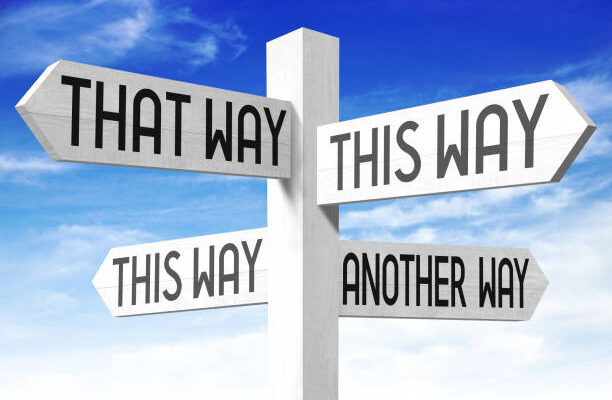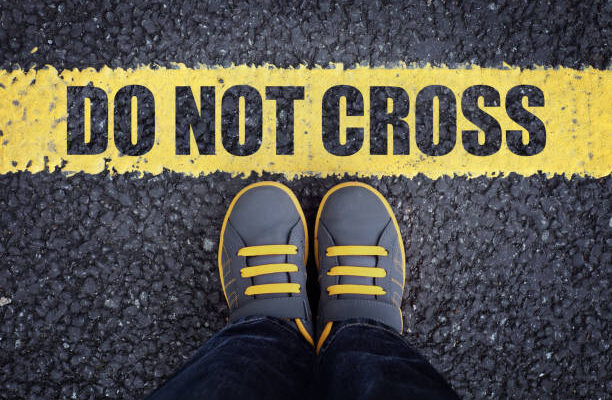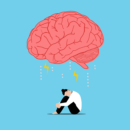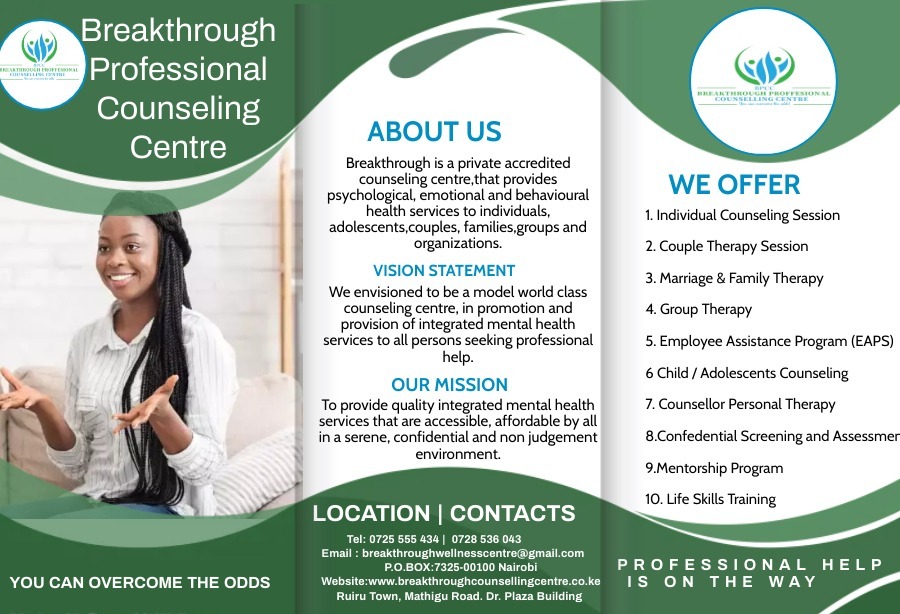The Healing Power Of Active Listening and Empathy.
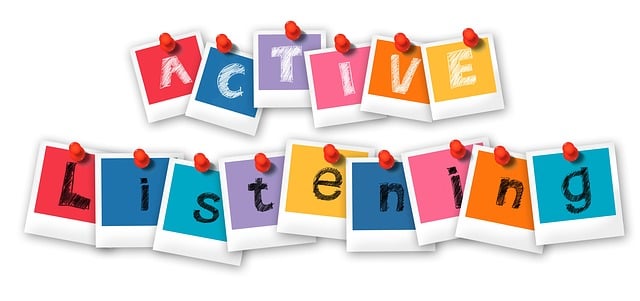
Have you ever spoken to someone and you were left feeling worse than you did before opening
up? I remember once talking to someone about my personal issues with a close friend of mine. I’m going to call my friend, Candy. Candy had been my childhood friend.
We had a fallout which led to a physical altercation and I felt like it didn’t have to go the way it did. We should have handled the situation better.
I was sad, my heart was breaking and all I could think about was what I could do to fix the relationship but I knew it was too far gone. I reached out to someone to talk about it and told them the story. I remember them asking me, ‘sasa mwanamke ni mtu wa kukulilisha’, loosely translated, ‘You mean a fellow woman would make you cry?’
My heart sunk. I felt broken, I had a feeling that I can’t put in words to date.I actually felt disrespected, dismissed and invalidated. I started wondering why I opened up in the first place. I should have kept quiet. I condemned myself. I was overthinking.
There must be something wrong with me for feeling bad about losing a friend and expressing my pain, I am weak, I am an emotional wreck. “Why I’m I crying?” I asked myself. I doubted my sanity.
Have you ever experienced such a thing?
WHAT IS ACTIVE LISTENING?

For listening to occur, there have to be two parties involved, the speaker and the listener.
There are levels to listening:
Level 1: Hearing
This is the transfer of a sound or message from a source/speaker to you. You
Basically, use your ears for their primary function like infants.
Level 2: Listening
This is where you hear the information, and perceive it using your brain therefore
you are able to understand what is being communicated. You intentionally want to get the
message being delivered.
Level 3: Active listening
This is where you are able to listen to, understand the message, perceive it and be present and aware of the verbal and non-verbal cues within a conversation. It also involves providing appropriate feedback for the information you have gathered.

WHAT IS EMPATHY?
This is an advanced level of understanding. You are not listening to respond, you are listening to understand. Empathy is the ability to understand one’s emotions, thoughts and behaviours from their perspective based on what you have heard them say.
For me to practice empathy I need to see things through your lenses whether I have experienced what you are talking about or not. With empathy, I get to wear your shoes and try to understand how it feels for you to walk in them.
RELATIONSHIP BETWEEN ACTIVE LISTENING AND EMPATHY.
As you’ve read, empathy is a more advanced level of active listening. Without active listening, empathy is difficult to achieve.
During active listening, the speaker is able to express themselves and you hear the message, perceive the emotions and reflect on what they’ve said, you can ask multiple questions to allow the speaker to fully express their thoughts and for you to see if you really understand what they mean.
It is coupled with minimal prompts and facial expressions that go hand in hand with what they are communicating. Active listening allows you to be fully present as the speaker is sharing with you.
After that is done, empathy can be applied. This is when you get to think about what they’ve said, reflect on their feelings and be there for them in a way that will be helpful to them.
It doesn’t involve you using your imagination to think about how they would feel, based on how it would make you feel instead you think about how they would feel based on how it has affected them.
A few years after speaking to my friend in the story above, I shared with a counsellor about my issue with Candy and the first thing the counsellor asked me was, “how did that make you feel?”
Presumably, I had a lot to say. He sat there and listened to me ranting for almost an hour, he asked me questions when he didn’t understand something, he looked at me as I shared, he nodded and responded appropriately to anything I asked during that session and he also gave me time to cry when I needed to. After sharing, he asked me what I would have done differently.
When I entered the session, I didn’t know what to do, but after sharing and being listened to, I had an idea of the way forward.
THE HEALING POWER OF EMPATHY AND ACTIVE LISTENING
As I tackle this, I am going to look at it from 2 perspectives, the giver and the receiver. The impact of empathy on the one that gives empathy and the one that receives it (is given).
THE RECEIVER
If you have, this is for you. Do you think the listener applied empathy? Stick with me, we will find that out.
You feel heard
When you are given empathy, you are able to express yourself as much as possible, you are given a chance to open up, share, release your emotions and clear your mind. Sometimes, just being able to open up fully is all you need. Having someone who listens, cares and is present with you during that period is healing in itself.
You feel like you matter.
When you are listened to, it gives you feel valuable. You feel like you are important to the listener’s life and that what you are saying is also important to them. It shows that the listener cares about you.
You feel understood
You feel like the listener understands what you are feeling. You are not just mumbling and saying things that do not make sense. It is clear that your thoughts and feelings are well articulated and sensible.
It allows you to organize your thoughts and see any patterns
When you receive empathy, you get the chance to reflect on what you’ve heard yourself talking about and therefore see any common underlying patterns or behaviours from how you handled yourself in the past.
It gives you the autonomy and independence to make well-informed decisions for yourself.
You are given a chance to make necessary decisions about your own life based on your personal experiences and journey.
You feel like you are not alone.
Empathy allows you to know that your problems are not only yours. Fellow human beings go through similar challenges and may even overcome them, therefore, giving you hope when you are going through the challenges too.
Lightens your load.
Like the saying goes, “a problem shared, is a problem half solved”. When you are listened to, it lightens the weight of the issues and gets you out of your head
You are affirmed.
Empathy validates your feelings. You are reminded that what you are feeling is real and you have a reason to feel the way you do. You are given a chance to explore those emotions deeper and deal with each one of them as they come.
You can tackle the problem from a solution-focused point of view.
Empathy opens up a path that is solution-focused other than problem-centred. You get to examine the issue holistically and therefore come up with a solution with all the necessary variables in mind. Clearly identifying the problem.
You may desire assistance.
Since you were heard and understood and you know that the listener is there for you. You are able to ask them for their thoughts and opinions about the problem at hand and a possible solution. Empathy can bring up the desire to ask what the listener thinks from their perspective, therefore, offering you great advice.
It focuses on you.
Empathy and active listening allow that moment to be about you. Not about the listener. You feel like the listener is dealing with you and your problem and not themselves, others and how they would have handled the issue if they were you.
What others things do you think empathy and active listening would help you feel?
THE GIVER
You feel like you are giving back
By listening to others and practising empathy, you get the chance to walk with someone and help them figure themselves out without judgement. This allows you to serve another person fully.
You appreciate different perspectives
As the giver of empathy, you get to appreciate that your way or how you see things is not the only way to view things. You get the opportunity to understand how things can be very different according to the other person based on how they perceive things (the 6 and 9 analogy)
You respect the uniqueness of each person
Each person is unique based on their environment, genetic makeup, and choices. By providing empathy you appreciate others, therefore, caring for them even if they are different.
You practice selflessness
It is common knowledge that ‘It is not always about you.’ Empathy serves the other party more than it serves you. It gives you a chance to do something caring for another person that may not benefit you directly.
Have you impacted someone by actively listening to them and giving them empathy?
When you practice empathy, you do more for others than meets the eye. At the moment, it may look like you are not doing much, it may even feel it is a waste of your time, but you may be saving someone’s life (literally and metaphorically) just by doing that.
To sum up, Empathy and Active listening cause healing. In a society flooded with unsolicited advice, stereotyping, grouping, listening to respond, selfishness and being self-absorbed, I would urge you to practice empathy. It is a service to another that you should not take for granted.
ABOUT THE AUTHOR
Sheila K. Muli
Counsellor, Trainer and Speaker


